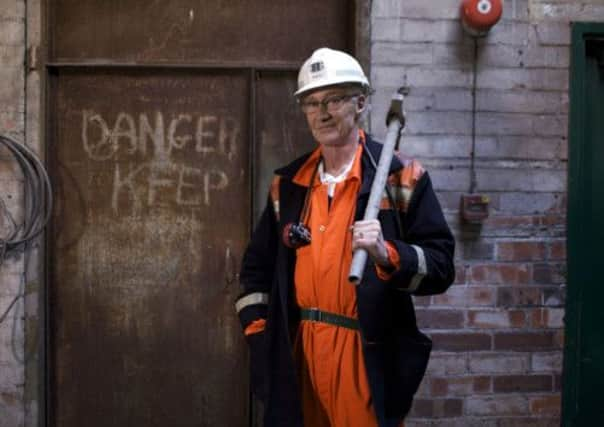TV preview: Paul O’Grady | Benefits Britain 1949


Paul O’Grady’s Working Britain
Thursday, BBC1, 10:35pm
Benefits Britain 1949
Monday, Channel 4, 9pm
But Paul O’Grady is that rare thing: a TV personality who actually has a personality, and a past, and a very decided point of view. While lounging against his Aga in his “posh ’ouse” in Kent, he declares himself still firmly working class, of the people and for the people. Whether you think the income and security he’s earned should rule him out of that or not, O’Grady’s stance is clearly partisan, which makes him as good a person as any to stand up for the workers.
“They were the backbone of the country, hard-working honest people with strong values and I wonder if they still exist … all I hear about now is rioting hoodies or chavs with too many kids,” he says. “Where did it all go wrong for the working class?”
Advertisement
Hide AdThe obligatory quest laid out, Paul O’Grady’s Working Britain goes on to investigate his own family’s past in Birkenhead at Lever Bros and in domestic service (“nothing like Downton Abbey,” he points out dryly, “it was slave labour”), as well as touching on the depression, the Jarrow marches, the war years, the Bristol bus boycott, the miners’ strike and so on. And along the way he tries out various jobs – he makes a decent clippie – and interviews those involved, ending up at a Glasgow call centre (although perhaps not a typical one) where the young workers don’t want to think about class at all.
As always with these things, there is a certain amount of stating the obvious, but holding it together is O’Grady’s strong thesis, that being working class is “a badge of pride – it’s a set of values, about the way you conduct your business and the way you treat people.” And that’s something rarely said in a climate where badly paid or unemployed people are routinely blamed for their own problems – as in, for instance, the recent Nick and Margaret: We All Pay Your Benefits, in which Lord Sugar’s cronies patronised the poor.
Channel 4’s Benefits Britain 1949 also looks back to an earlier age and asks whether today’s working class are given too much. A 75-year-old retired man, a young disabled job-seeker and a woman on sickness benefit take part in the first programme, where their claims for pension and benefits are assessed by 1949 rules and paid accordingly, albeit adjusted for inflation.
The pensioner goes from £127 a week to £38 and is stuck in a home; the woman with multiple health problems gets £38 too but is decidedly unhappy at being told to get a job; the young man born with spina bifida doesn’t get anything but is put on a training course. To ensure they can’t cheat, their cars, stock of food and other luxuries are taken away.
The results are horribly grim, though it’s the youngest participant who seems happiest with the result. But overall, it’s a haunting picture not just of the past but of what could come round again.
Don’t miss
Entertainment
That Puppet Game Show
Today, BBC1, 6:45pm
Muppets vs celebrities (cue jokes about which is which) as Jonathan Ross and Katherine Jenkins face challenges set by puppet hosts.
Documentary
Side By Side
Monday, Film4, 10:50pm
Advertisement
Hide AdKeanu Reeves proves he’s more than just a pretty face presenting this interesting film-length doc about how digital technology is replacing traditional film cameras.
Pop
Crazy About One Direction
Thursday, Channel 4, 10pm
As the popular boy band’s film is released, here’s a programme about their most devoted fans – older viewers will recognise it as just like that one about the Bay City Rollers which always turns up on clip shows about the 1970s.
Technology
Dara O Briain’s Science Club
Thursday, BBC2, 8pm
Advertisement
Hide AdThe updated Tomorrow’s World returns, with the comedian and boffin pals looking into robots, moon mining and brain scanning.
New Comedy
Big School
Friday, BBC1, 9pm
In his first solo sitcom, David Walliams plays a hapless teacher with a crush on a fellow staff member (Catherine Tate). Philip Glenister plays his rival.